One of the more challenging parts of being a prepper is keeping our activities secret. We all seem to agree that we shouldn’t let people know what we are doing, so that they don’t come knocking on our doors, when a disaster strikes. If they know we have food, they’ll just be that much more insistent in their knocking.
But let’s be real about this. Do you really think that your vegetable garden, solar panels and rainwater capture system have passed unnoticed by your neighbors? Probably not. Neighbors tend to be nosy and even those who are not can’t miss seeing those things. They might not recognize the significance of those item, from a prepping point of view; but they’ll know they are there. When a disaster strikes, they’re likely to remember.
This is not to say that we should ignore the idea of OPSEC; merely that we might need to up the ante a bit if we want to hide it from our neighbors. A little camouflage and a little subterfuge might go a long way in helping to keep our neighbors in the dark.
What’s Secret and What’s Not?
To start with, we need to develop a good understanding of which of our prepping activities are secrets and which are not. The advice that people pass around about being secretive in our purchases makes sense, to a point. But when those secretive activities are obvious in and of themselves, then the secret is lost. In other words, if you normally don’t pull your pickup truck into the backyard to unload from a trip to Sam’s or Costco, but do so when you’re buying prepping supplies, it’s going to attract unwanted attention. The neighbors will end up seeing you unload those bags or rice and beans.
A much better shopping strategy is to buy a little extra on each trip, so that it just looks like you’re bringing home the groceries. Even a 50-pound bag of rice isn’t going to seem suspicious, if there’s just one mixed in with your other purchases. What makes is suspicious is having several of them.
So much of keeping things from your neighbors’ eyes is about context. Where you live; what you normally do; and what your neighbors do all play a part. Owning a 4×4 truck in the middle of Texas is considered normal. But if you live in Washington, DC, it’s going to look out of place. If you take that same truck and start setting it up to be “the ideal bug-out vehicle” it’s going to stand out anywhere, unless you live in the midst of a community of hunters who all deck out their SUVs and trucks like that.
Hiding in Plain Sight
It’s fairly easy to keep ordinary things out of sight, assuming that they truly are ordinary in the area where you live. The real challenge is dealing with things we can’t hide from our neighbors and which tend to stand out. If everyone had a vegetable garden, then it wouldn’t be hard to hide a vegetable garden. The same can be said for rainwater capture systems. With solar panels becoming more common place, the need to hide them has been diminishing.
But what do you do about the garden and the rainwater capture? Those seem to be the hardest things to hide.
Option one is to try and normalize what you’re doing. When they ask about your garden, you can simply say that you like gardening… “and why aren’t you growing one too?” While vegetable gardening isn’t as commonplace today, as it was in the past, it is still not all that unusual.
Rainwater capture is a bit more unusual though. While there are some states which are encouraging people to harvest their rainwater, the percentage of people doing It in those states is still rather low. So, a bit of subterfuge might be necessary to go along with the rainwater capture. Explaining that you prefer to water your garden with rainwater, which doesn’t have any chlorine in it, may make you seem a bit eccentric; but that’s not the same as being suspicious.
(Win a Prize!) Enter Our 2023 Survival Story Contest 🏆😍
As a former engineer, I’ve used this idea to the maximum with my neighbors. I’ve always got some experiment going on, whether it is solar cooking, putting up a wind turbine, or trying to harvest dew for water. To cover that up, I’ve let it be known that I’m a semi-retired engineer. All my neighbors laugh about the “eccentric engineer and his experiment,” but nobody seriously questions what I’m doing. The few questions I get are more on the order of curiosity, with people being genially interested in the technologies I delve into.
Rainwater capture can be hard to hide, especially if you use normal rain barrels. The explanation of using rainwater for watering the garden works to some extent; but you can only explain away so much water storage in that manner. When we’re talking about storing a couple thousand gallons of water, we need something bigger, like a swimming pool. Runing the water from your rainwater capture into the swimming pool is just good conservation, saving water that’s needed elsewhere.
Hiding Your Garden
The bigger challenge is hiding a vegetable garden. Most vegetable gardens are rather obvious and will quickly come to mind when there’s a shortage of food. Telling your neighbor “No,” when they know you have veggies growing in the backyard isn’t very effective, as they can come over the fence as soon as it is dark, getting what they want. But can a vegetable garden be camouflaged as anything else?
There’s a method of gardening known as “forest gardening” or a “food forest.” where planting is done to mimic the way plants naturally grow in a forest. That means planting them randomly, mixing the different species together. This is so different than our normal way of planting a vegetable garden, that it would pass most people’s notice. They would see it as a decorative garden, rather than a food source.
Planting a garden in such a manner starts with locating your fruit trees. Those need to be planted somewhat randomly (not in a line) and far enough apart, so as to leave room for planting other things in-between them. The next level would be to plant shrubs, such as berry bushes or vegetables like tomatoes and peppers, which grow up to a bush. Finally, plants which are lower to the ground are planted, again, keeping them random.
It is still possible to tell that such a garden is a vegetable garden, if you look close enough. But most people won’t look that closely, so they’ll miss what you’ve got growing in your yard. You can make this garden even harder to recognize, by mixing some decorative flowers and plants in with the things you’re going to eat. When you harvest, be sure to do so randomly as well, so as to hide the idea that you’re removing plants from your yard.
Be Prepared for the Neighbors
Regardless of how good a job you do at hiding your garden and your other preps, there’s a good chance that your closest neighbors are going to see what’s going on. Even if they don’t reach the conclusion that you’re a prepper, they will likely remember that you have food and water when they’re in need. But even if they don’t, you can pretty much count on people going around the neighborhood, seeing what others have and asking them to share. That would be a normal reaction, regardless of the circumstances.
Knowing that’s going to happen, you have to have an answer ready. The typical one that most preppers say, at least now, before a disaster strikes, is that they won’t help anyone. Are you really going to be able to do that, when the time comes? What if those neighbors are friends or their kids are playmates of your kids; could you still say “No?”
To be honest, I’m not sure I could. It’s one thing to say no to someone I don’t know or just barely know; but it’s a whole lot harder to do so with friends or relatives. As much as I’d like to say no to them, rubbing it in by telling them they should have prepared when they had the time and opportunity, I just can’t be that calloused.
So, what I’ve done is prepared, at least a little bit, to help my neighbors. I have a few hundred pounds of rice and beans stored up, which are for giving out to others. I’ve also stockpiled seed, so that I can help them start their own gardens. Then, when they come around looking for help, I’ll have some available. It won’t be as good as what my family is eating; but it will be something.
There’s one catch I’ve got built into that; they’ve got to be willing to work for it. I want something in trade. If that’s just hauling water for their family and mine, that’s enough for me. But they’re going to have to be willing to help themselves. Hauling water is part of that; but they’ll also need to be willing to work to plant and care for their own garden. I’ll supply the seed and some knowledge, but they’re going to supply the labor.
Conclusion
So, what’s the sum of all my thinking here? It’s that I realize that my ability to truly hide my actions from those living around me is limited. Even if I can fool them for now; that curtain will be easily torn when a disaster strikes and they run out of food. They might not realize before that time that I’m secretly preparing for a disaster, but they’ll see my preparations as their potential salvation. That’s what I have to be ready for.
Regardless of what any of us say, shooting our neighbors when they show up to ask for food isn’t a good idea. Even if they try to steal our food, shooting them would attract too much attention. Others may choose to retaliate, but even if they don’t, questions will be asked about why we shot them. That will let the secret of our preparedness out. Once that happens, we’ll either be constantly repelling attacks or forced to bug out and find someplace else to hide. I’d rather stay put and let my neighbors be the buffer between me and those other people.


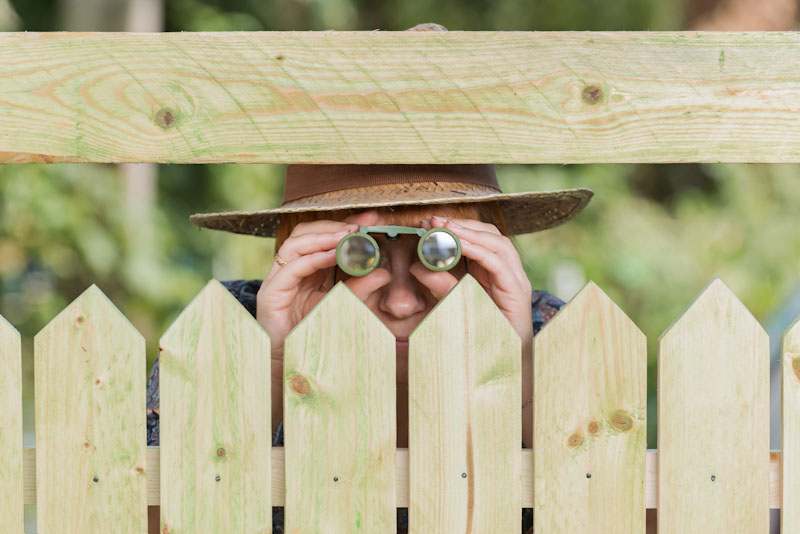


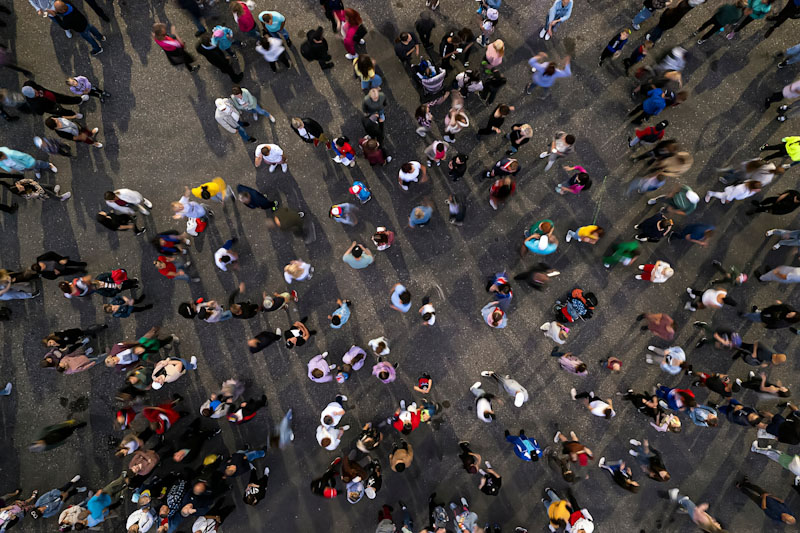
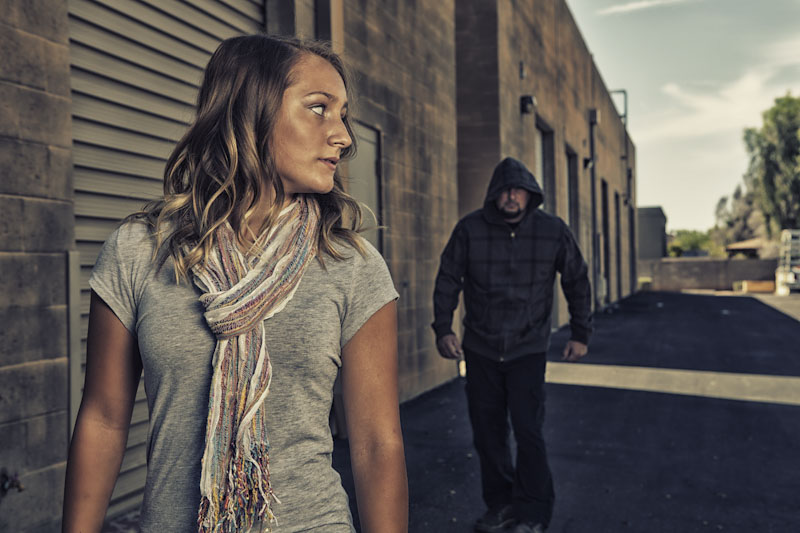
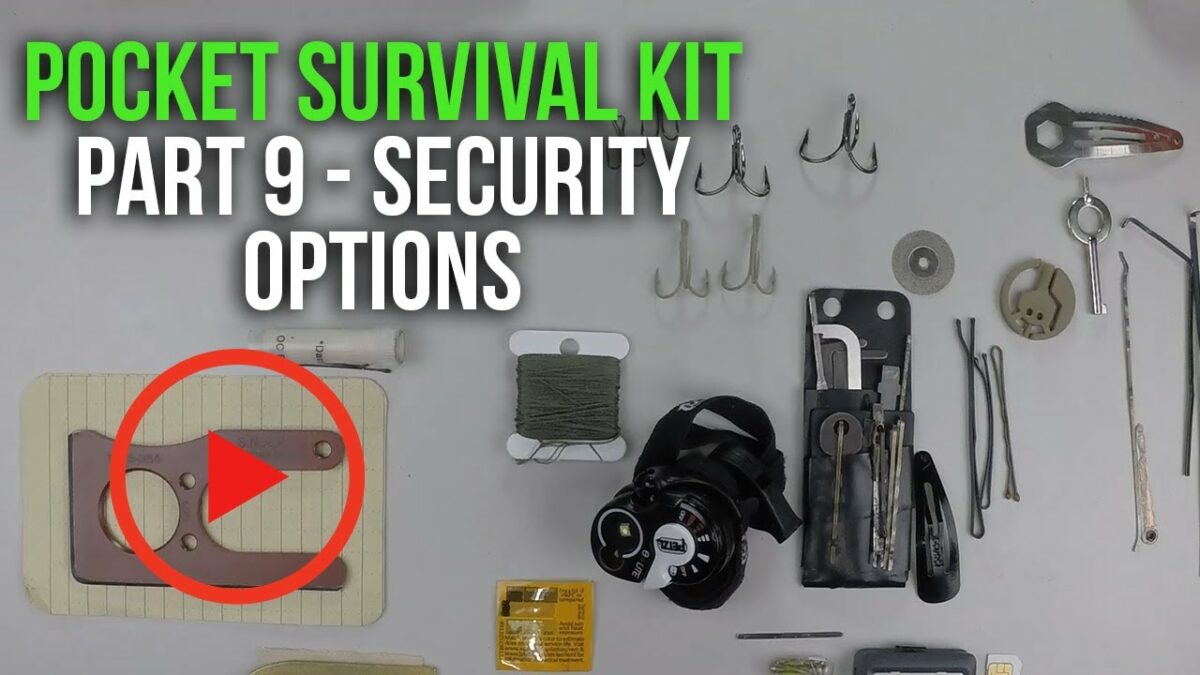
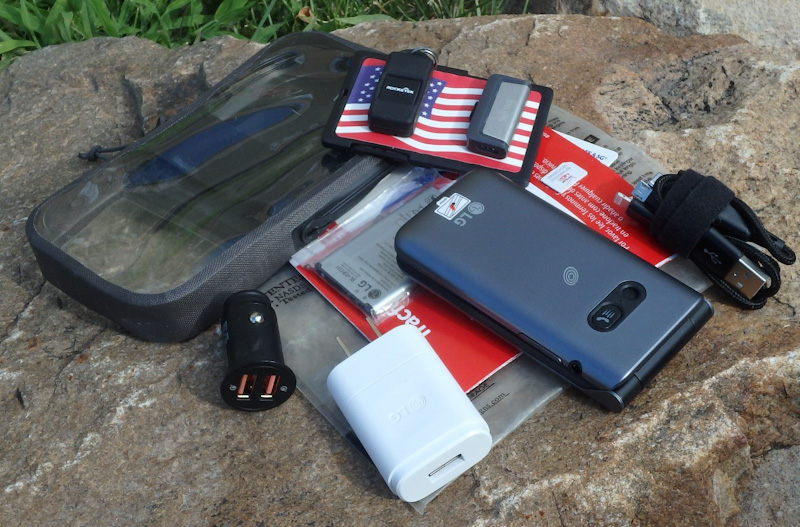


Jesus | January 12, 2024
|
WHat are you going to do for the 4-5 months before the garden flourishes and they have no food? The bible spells it old some had and others had not. Those who were not prepared suffer the consequences period. Their choice.
Bill Leslie | January 12, 2024
|
I’m new to the prepping world. Do not have a basement. In a community on about 2/2 acre. Have save some food. Trying to process saving or making water. Saving rainwater sounds good but what to save it in without flashing lights?? Would be cool if there was or could start a behind the scenes prepper support group. Could help folks like me…
Danno | February 19, 2024
|
Where are you located, generally. I’m in Arkansas regarding your comment about a prepper support group.
Dee | May 18, 2024
|
Prepper Support Group! That sounds like something my husband & I need! We are new preppers & are overwhelmed with all the info. We planted a little garden this year (really our first, having only grown a few tomato plants before.
radar | January 13, 2024
|
Bill, I disagree with your comment about the suitability of a 4×4 in Washington DC. I lived an hour out of DC on a Blue Ridge mountain top that had a half-mile long gravel road up the mountain and all throughout. So, first, there is a lot of poor people living in DC; and they drive what they got, no matter what it looks like. In every town poorer people drive pickup trucks to do lawn services, scavenge for recyclables, haul debris for residents, etc. Everybody in DC knows that every day out-of-town visitors are present, driving whatever they got.
My response to anyone who may feel stuck with their vehicle (by not having a desired 4×4. or by having one) that may seem “out of place” is to USE A RUSE (meaning create a story impression about your need for your vehicle in your neighborhood). How is that done? Here is an example. The state of Wisconsin WANTS volunteer STORM SPOTTERS, and they will train civilians FOR FREE on how to read clouds, watch for tornados, be safe, and call in reports. They also teach (but you have to buy the relatively inexpensive equipment) how to determine how much rainfall happened from a storm at your location. That also provides good information to gardeners about whether there is enough moisture in the soil at roots-level for garden plants—it helps guide water-usage conservation (e.g., don’t use more than what you need). Your local conservation department also wants invasive plant and invasive bug spotters. Here is my point with the ruse. Pick your ruse, whatever it is, and put picture-bumper-sticker on your fenders, or use “see-through” window decals. So you may have a decal of a fly-fisherman on your window, having a 4×4 fits driving to remote areas fishing. If you’re using a storm spotter ruse, get informed about it and use the fender or window see-through decals. If you actually did drive around as a storm spotter, you would want a 4×4 with plenty of gear because storms cause flooding, accidents, blows down buildings—you might want to be prepared to be a First Responder FOR YOURSELF OR OTHERS, so you need gear and a vehicle to carry it all (wherever you may be—because after all, “Strong storms don’t make appointments; they just show up whenever they want”).
So you could use the ruse of being a Storm Spotter, add a window decal of a “Fly Fisherman”, or a “Boater”. You could get bumper stickers about Conservation (invasive plant inspector, or bug inspector). When I do this I have bumper stickers, window decals, and a Conservation pamphlet on my dashboard. Depending on where I may want to go I will call the local Sheriff to find out if it is OK to park at the furthest gravel off-road shoulder to a highway. When I am fishing I photocopy my fishing license and put it on my dashboard, so if a Police Officer stops to check out my vehicle-he can see my purpose; and I add my cell phone number so s/he can call me if desired (since I am hoping to avoid a ticket).
Another benefit in your neighborhood is your neighbor may view you as “a Go-To guy or gal” in the event of any sort of emergency (storms always bring a response like that). Wouldn’t it be better for an experienced Prepper to guide neighborhood response than possibly a fast-talking salesman who may only be an opportunist intent to manipulate neighbors for his or her own good, but not the neighbors’ good.
radar | May 18, 2024
|
Selco has written several long articles, books, etc. about the year long siege during the early 1990s Balkan War. He was 18y/o when it broke out and had a chance to head for the hills (and wished he had). He chose to stay with his family (all the relatives in one house). He mentions that people in the Capitol city did not have enough wood to heat their homes and cook during winter.. If a neighbor died or got out before the siege, or was just plain missing– that neighbor’s home would be taken apart, board by board, just for firewood.
I would guess that most preppers who write comments or ask questions for Survivopedia are town and city folk. If you got food, do you have firewood? It can take a lot of firewood to boil a lot of water outside. If, when, as the SHTF people have to trade for what they need with what they got. People may not want what neighbors have, but it still may be useful and the trade can happen (feeding a neighbor)) and still have “an extra item” that could be added as a bonus to close-complete a trade with someone else.. Have people walk neighborhoods looking for downed limbs. Bring a handsaw, cut as you need to. Fill your car or truck. Then build (create a place) to store firewood and cover it and make it look ornamental (not shabby if shabbiness doesn’t work in your neighborhood}. Go out after a storm and gather lots of wood so you have something to trade if you lack resources to buy bulk food. Start bartaring now..
Douglas Collins | May 18, 2024
|
We have a saltwater system swimming pool (The chlorinator breaks down dissolved salt to chlorine and sodium). I’ve thought that this would be a good water storage system -large amount, sanitary, and doesn’t look like a water storage system. Only problem is the salt. Salinity is only about 1/8 of sea water, so I think some sort of desalination is feasible.
Distilling is obviously a possibility but is complicated and energy intensive. Does anyone have any experience with reverse osmosis? I see a lot of undersink reverse osmosis ads on the internet, but they only look useful for purifying water that is already fresh. I need something like brackish water desalination.
Travelin On | May 18, 2024
|
Another way I’ve found to keep things quiet and non-suspicious to neighbors is when packages arrive, folks love guessing what one is receiving. They can supply the answer to their own questions and I don’t need to correct or agree with their guess. Not so long ago two large boxes arrived and the guess one neighbor had was that I had bought a bunch of buckets of cat litter. Another neighbor asked what I had actually gotten and my response was the first neighbor’s guess was a good one. The neighbors immediately lost interest. It was a wrong guess, but still a good guess, and it was no ones business what I had actually ordered, and since I have a cat…a perfectly logical guess. Took the boxes to their destination and stored the contents with no one the wiser.